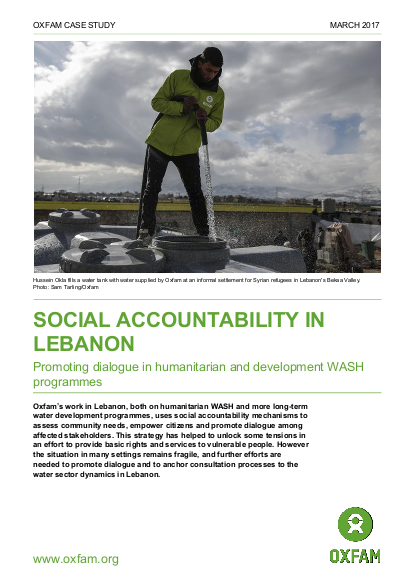
Lebanon’s water resources are limited in terms of both quantity and quality. This is a result of mismanagement, ageing infrastructure, inadequate investment within a sectarian political system, coupled with depleting water resources and climate change. These challenges and constraints have resulted in limited provision of basic services and unauthorized tapping of water sources. Consequently, public water service providers operate at an annual financial deficit, with low cost recovery for the services provided. Local populations have a lack of trust in public services in general, and water services in particular. With the Syrian refugee crisis, an influx of some 1.5 million Syrian refugees since 2011 has put further strain on water resources, incurring an increased demand on water provision by an estimated 8 to 12 percent.
Oxfam works on both humanitarian and more long-term development programmes in Lebanon. Syrian refugee communities residing in informal tented settlements (ITS) are provided with water and sanitation services and infrastructure, and communities are engaged to ensure hygiene practices are improved to mitigate public health risks. Oxfam also works with national water service providers, the water establishments, to improve existing water infrastructure for the host communities – and with citizens to raise awareness of water service provision topics – contributing to overall cost recovery of the service provider.
This case study aims to show how social accountability mechanisms are crucial in coordinating efforts and ensuring effectiveness of water interventions that support both refugees and host communities alike.